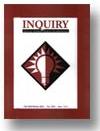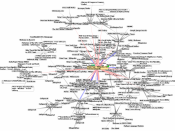CARS Decision Making Technique Article Review
While conducting internet research on various critical thinking and decision-making techniques that are available, I came across some material written by Robert Harris, a retired university English professor who now spends his time writing articles and essays on creative problem solving, using the Web as a research tool, avoiding plagiarism and other topics related to critical thinking and research. One article, Evaluating Internet Research Sources (Harris, 1997), introduced an innovative idea initially intended for research, but it can also be applied towards decision-making in the business. This method is called CARS, which stands for credibility, accuracy, reasonableness and support.
Credibility
The first step in evaluation and decision-making is to determine the credibility of the source that is providing the material or issue. The listener or researcher should search for evidence of authenticity and reliability as the material is provided. Some key tests that should be applied include checking the author's credibility or credentials, ensuring evidence of quality control for the material, looking for metainformation (Harris, 1997), and check for indicators of lack of credibility.
Some indicators, especially for written material, can include anonymity, lack of quality control, negative metainformation and bad grammar or misspelled words.
Accuracy
The second step of evaluating research materials or analyzing input for decision-making is to conduct an accuracy test to assure that the information is actually correct (Harris, 1997). Some concepts that will help in the accuracy test include checking for timeliness, comprehensiveness, audience and purpose. In addition, one should watch for indicators of lack of accuracy, which may include no date on the document, vague or sweeping generalizations, old date on information and a very one sided view that does not acknowledge opposing views or respond to them (Harris, 1997).
Reasonableness
Checking for reasonableness includes examining the...



CARS
very useful for research.
Excellent
2 out of 2 people found this comment useful.